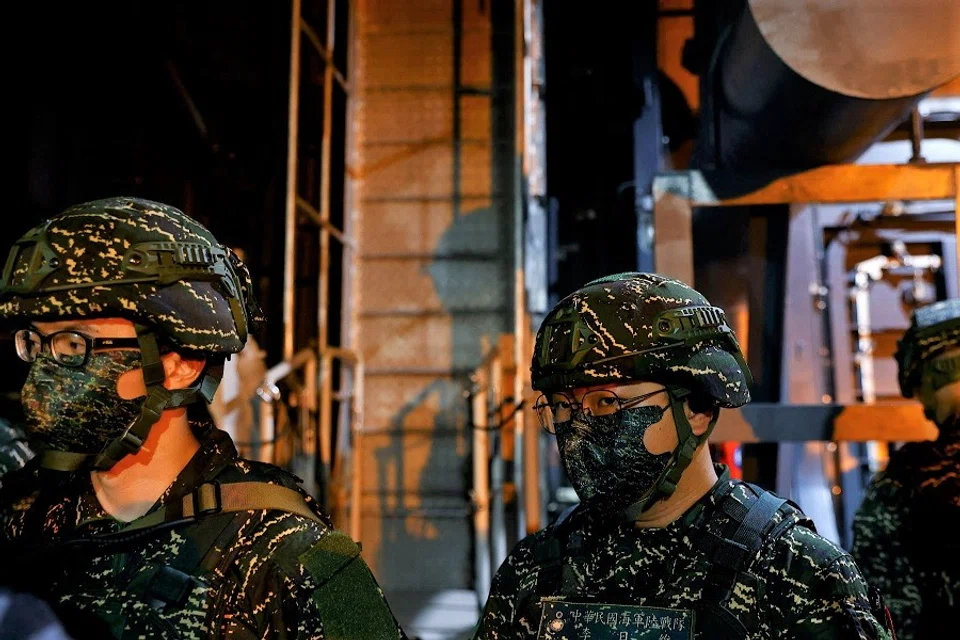Living in the dragon's shadow: Taiwan's identity dilemma and a view from Southeast Asia
Worsening cross-strait relations in recent times have generated anxiety about imminent conflict across the Taiwan Straits. During a three-month stint in Taiwan as the recipient of a Taiwan fellowship, RSIS academic Benjamin Ho observed that what is at stake for Taipei is not so much the threat from China per se but how domestic cleavages relating to Taiwan's political identity complicate efforts to arrive at a modus vivendi with Beijing.

The year 2022 was a busy one for Taiwan's air force. Chinese warplane incursions into Taiwan's air defence zone almost doubled as China sent 1,727 planes, compared to 960 incursions in 2021 and 380 in 2020. Fighter jet sorties more than doubled from 538 in 2021 to 1,241 while incursions by bombers, including the nuclear-capable H6, went from 60 to 101. Last year also saw the first incursions by China's drones, with all 71 reported by Taiwan's military taking place after the visit to Taipei of then leader of the US House of Representatives Nancy Pelosi.
Notwithstanding the increased Chinese military activity, however, one is hard-pressed to find any sign of anxiety among the Taiwanese population. During the three months I spent in Taiwan from September to December, Taiwanese people were going about their daily lives as normal, shopping centres were packed during the weekends, domestic tourism was bustling (though the absence of overseas travellers was conspicuous for the most part), and local elections took place, with domestic matters consuming more public attention than foreign affairs.
While political elites, especially those in the defence and foreign policy sectors, were understandably anxious about the threat from Beijing, ordinary Taiwanese citizens were for the most part unperturbed. One Taiwanese friend told me that the "old communists (老共) have been saying the same things for years, and there is nothing new".
... both the DPP and KMT can agree on one thing: the US remains an indispensable power for the long-term security and well-being of Taiwan.
Why America matters
At the same time, the US continues to enjoy considerable goodwill among the Taiwanese population, especially among political elites - from both sides of the fence.
In a Foreign Affairs article written in November 2021, Taiwanese President Tsai Ing-wen lauded democracy as an ideological beacon which unites Taipei and Washington. Not to be outdone by this show of affinity with the US by the Democratic Progressive Party (DPP), the Kuomintang (KMT) opposition - led by its chairman Eric Chu - reopened its liaison office in Washington in June 2022. Chu told reporters that the KMT has been a "pro-US, pro-democracy and pro-peace" party dedicated to defending Taiwan. Notwithstanding their differences regarding how best to deal with China, both the DPP and KMT can agree on one thing: the US remains an indispensable power for the long-term security and well-being of Taiwan.

Notwithstanding this perception of the US, Taiwanese nationals whom I spoke to also recognised that when it comes to the defence of their land, the primary responsibility ultimately lies with the Taiwanese people themselves. Indeed, American support for Ukraine is viewed as a blueprint for how Washington would most likely react in the event of a Chinese invasion: the US would intervene provided Taiwan was able to defend itself in the initial stages of the conflict. In the absence of the Taiwanese will to fight, it was unlikely that the US would risk its troops in an all-out conflict with China.
Taiwan-Southeast Asia relations - for better or worse
The New Southbound Policy (NSP) - announced by President Tsai in 2016 - was widely viewed as a counterpoint to China's Belt and Road Initiative and as a means of facilitating greater international space for Taiwan and ensuring that its economic fortunes were not overly wedded to Beijing's.
Notwithstanding the high-level support and political rhetoric for the concept, Southeast Asia does not feature considerably in Taiwan's political calculations but can be best described as a "rear-view mirror" priority instead of a central, "front-view" foreign policy objective. As one scholar told me: "Economic cooperation in the NSP generally works at the lower level, which is better than nothing ... [but] it is unlikely to achieve its political objectives. To do so, Taiwan would want to go for bigger players rather than Southeast Asia countries."
... given that Southeast Asian countries are much less explicit in their support for Taiwan for fear of offending Beijing, it is unlikely that they would provide the level of material - and moral - support to Taiwan...
In addition, it is unclear whether Taiwan and Southeast Asia are naturally aligned in terms of political worldviews, particularly among their peoples. In the minds of Taiwanese people, Southeast Asia remains a vital source of migrant labour, but whose socioeconomic status (with the exception of Singapore's and Brunei's) is lower than that of Taiwan's, creating unequal social dynamics.
Likewise, the Taiwanese idealisation of liberal democracy - as a quintessential feature of its political worldview and governing philosophy - is not entirely shared by or embraced in Southeast Asia, which has a mix of political regime types.

Whether this difference would generate natural affinity between Taiwan and Southeast Asia is still open to question. From my own observations, Japanese culture is more well embraced in Taiwan than Southeast Asian culture. Furthermore, given that Southeast Asian countries are much less explicit in their support for Taiwan for fear of offending Beijing, it is unlikely that they would provide the level of material - and moral - support to Taiwan in the event they are forced to take sides in a conflict across the Taiwan Strait.
Taiwan's identity dilemma
A third, and possibly the most complicated, aspect of Taiwanese political life is its identity dilemma and the question of what it means to be a Taiwanese. Given that much of Taiwan's identity revolves around the Chinese threat, recent years have witnessed increased attempts by the Taiwanese government to de-sinicise (去中) Taiwanese culture or dilute its links to China.
For instance, the teaching of Taiwan's history is almost devoid of well-known Chinese stories such as the period of the Three Kingdoms and the antics of the concubine Yang Guifei. As one Lianhe Zaobao journalist recounted in 2020, "2,400 years worth of history from the Shang and Zhou dynasties to the Sui and Tang dynasties had been condensed to just 1,600 words over four pages in second-year junior high history textbooks".
At the same time, public opinion polls also show a growing desire by the Taiwanese people to maintain the status quo in cross-strait relations and for them to have the final say in any future decision on cross-strait relations. In a survey conducted by the National Chengchi University Election Study Centre in October 2022, 86.3% of the respondents expressed a desire to maintain the status quo, and only 1.7% wanted unification as soon as possible. The same survey also showed that 85% of the respondents supported the Taiwanese government position that Taiwan's future and the development of cross-strait relations must be decided by the 23 million people of Taiwan.
While it is certainly in the interests of the US and many other countries for a stalemate to be indefinitely preserved, domestic developments - in Beijing and Taipei - may yet create path-dependent outcomes that cannot be so easily reversed.

The poll results and the Taiwanese government's cultural efforts lend to the conclusion that the Taiwanese people are split along the following three lines, leading to an identity dilemma in Taiwan:
(A) We are Taiwanese 台湾人because we are not Chinese 不是中国人;
(B) We are Chinese, and we are Taiwanese (我们是华人,也是台湾人); and
(C) We are Taiwanese 台湾人 and we do not want to have anything to do with anything Chinese 不要和华族 有关系.
While (A) and (C) take a more hostile approach to the PRC, (C) goes one step further by severing Taiwanese identity from China and puts Taiwan on a more intransigent path to independence. Indeed, the educational changes, if strictly maintained, would put future generations of Taiwanese at a collision course with the mainland, especially if the Chinese government continues to emphasise in its indoctrination that reunification is an inevitable outcome.
How these identity dynamics play out in the coming years will be of crucial importance to the future of cross-strait relations. It is something that international observers need to pay careful attention to instead of being focused on purely structural factors. In a recent Foreign Affairs article, American observers Jude Blanchette and Ryan Hass argued that the best solution in the Taiwan Straits is "no solution". While it is certainly in the interests of the US and many other countries for a stalemate to be indefinitely preserved, domestic developments - in Beijing and Taipei - may yet create path-dependent outcomes that cannot be so easily reversed.
This article was first published as an Institute of Defence and Strategic Studies - RSIS Paper on 11 January 2023.





![[Photos] Fact versus fiction: The portrayal of WWII anti-Japanese martyrs in Taiwan](https://cassette.sphdigital.com.sg/image/thinkchina/3494f8bd481870f7c65b881fd21a3fd733f573f23232376e39c532a2c7593cbc)